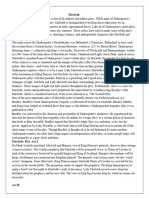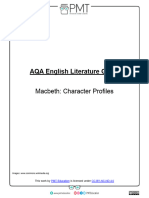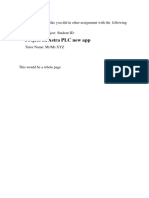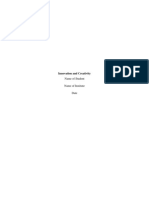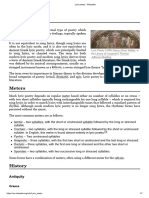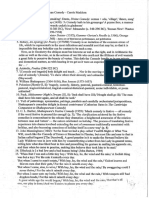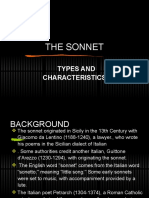0% found this document useful (0 votes)
78 views6 pagesMacbeth Essay: Student Name Ms. Mckinley Period Macbeth Essay Prompt # 2
This essay analyzes William Shakespeare's play Macbeth. It discusses how Macbeth and Lady Macbeth's unchecked ambition leads them to commit horrific acts of violence. It also examines how the play shows the difference between a just king like Duncan versus a tyrant like Macbeth. Finally, the essay concludes that Macbeth is a cautionary tale about how greed and the lust for power can corrupt even the noblest of people.
Uploaded by
mohammad AliCopyright
© © All Rights Reserved
We take content rights seriously. If you suspect this is your content, claim it here.
Available Formats
Download as DOCX, PDF, TXT or read online on Scribd
0% found this document useful (0 votes)
78 views6 pagesMacbeth Essay: Student Name Ms. Mckinley Period Macbeth Essay Prompt # 2
This essay analyzes William Shakespeare's play Macbeth. It discusses how Macbeth and Lady Macbeth's unchecked ambition leads them to commit horrific acts of violence. It also examines how the play shows the difference between a just king like Duncan versus a tyrant like Macbeth. Finally, the essay concludes that Macbeth is a cautionary tale about how greed and the lust for power can corrupt even the noblest of people.
Uploaded by
mohammad AliCopyright
© © All Rights Reserved
We take content rights seriously. If you suspect this is your content, claim it here.
Available Formats
Download as DOCX, PDF, TXT or read online on Scribd
/ 6










